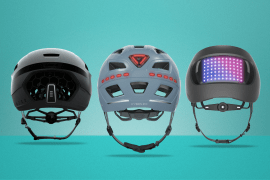5 things you need to know about the new Nissan Leaf
Saving the planet, one leaf at a time
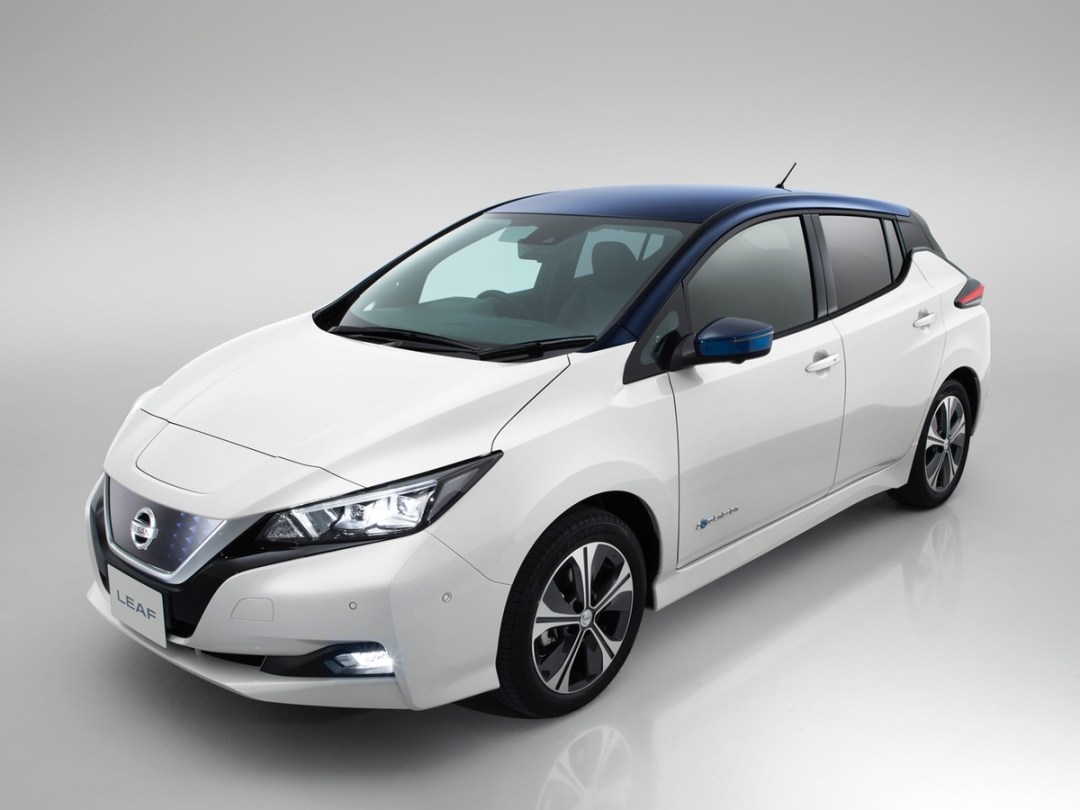
Once playthings of the rich and plug-equipped, cars powered by batteries and electric motors are now the inevitable future of personal transportation. Sorry hoverboard owners.
And, while top-end Teslas will still cost you a pretty penny, there’s a burgeoning raft of electric vehicles (or ‘EVs’) at the economy end of the market: BMW’s new i3 update; Chevrolet’s non-UK Bolt; Tesla’s own Model 3. Even Mini has announced its plans to build an all-electric machine.
Not keen to miss out on the wave of eco enthusiasm is Nissan – back with something newer, slicker and faster: a 2018 edition of its all-electric Leaf.
Giving the first generation of its battery-powered hatchback a good zapping, Nissan’s stuffed the Leaf 2 full of nifty tricks and economical improvements – all in an effort to make it your e-runaround of choice.
Want all the details? Good news: we charged our cells and hopped over to its Tokyo launch for the full run-down on the Nissan Leaf 2018.
You can drive it with just one pedal
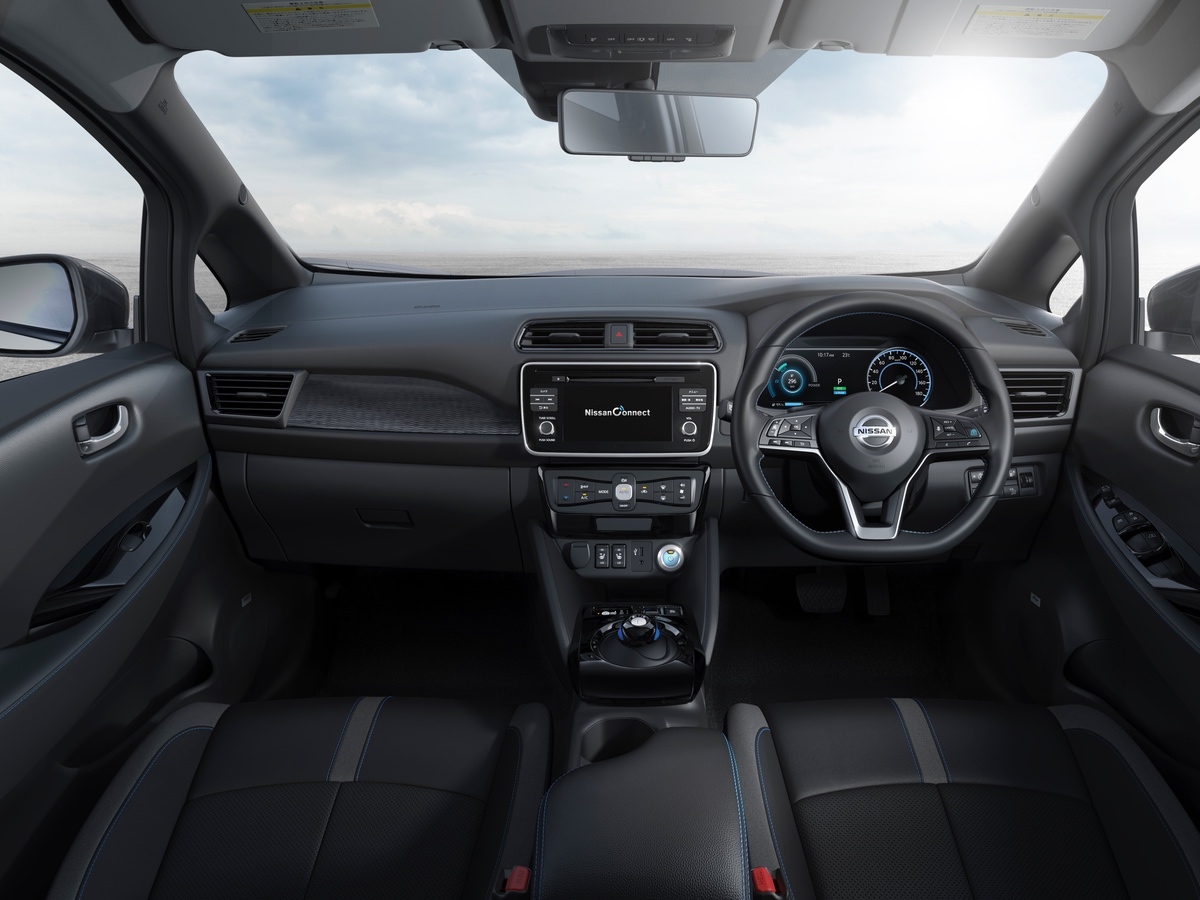
Sure, hammering through the gears is half the fun of a hatchback, but gear-free acceleration is a pretty nifty trade off when you’re zipping around in an electric car. Now Nissan’s gone one step further and decided that drivers don’t need two pedals, either.
Not because braking is boring, mind – rather, because it’s worked out how to use regenerative energy tech to slow the new Leaf all by itself, which means driving using just a single pedal. For everything except emergency braking (which still requires use of the old-fashioned stopping pedal) you can use the e-Pedal.
Like a road-going dodgem, accelerate as normal, before easing off to slow gradually or taking your foot off altogether to stop.
Unlike a dodgem, it’ll even hold on a hill, with friction brakes applied automatically – so you can focus on showing off your clean eco conscience at every traffic light. Before deploying all of that electric power when it goes green, naturally.
It’ll get you from London to Liverpool on a single charge
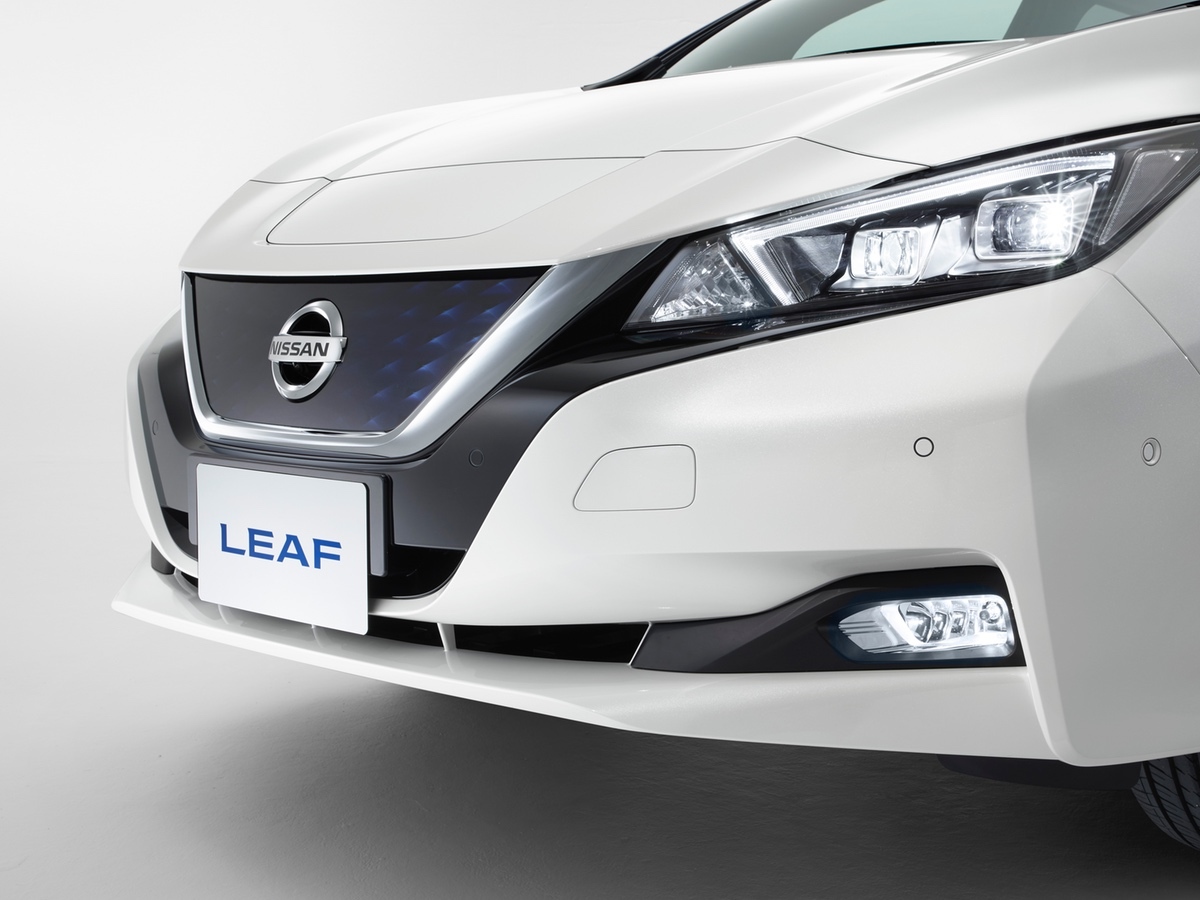
No longer restricted to the city suburbs, on a full charge the new Leaf can do 235 miles – which is enough to get you from London to Liverpool (or the closest charging point you can find around Anfield).
While a petrol-powered Nissan Micra might give you closer to 500 miles, the all-electric Leaf takes you places without the guilt of a visit to the fuel pump – and significantly out-ranges the new 2018 BMW i3’s 180 miles.
It’s all thanks to that e-Pedal tech, together with refined aero and a new battery design which increases storage capacity without growing an inch over the old model (delivering a 67% increase in energy density, no less) – and that battery can also be used in your home when it’s not powering the Leaf, to store solar energy and slash your bills. Which should nicely offset your gaming rig.
Quick charging can zap the Leaf to 80% power in 40 minutes for a road-side top-up, too, while a longer range model due in 2018 should see the Leaf’s efficiency stretch even further.
It’ll out-gun a Ford Fiesta
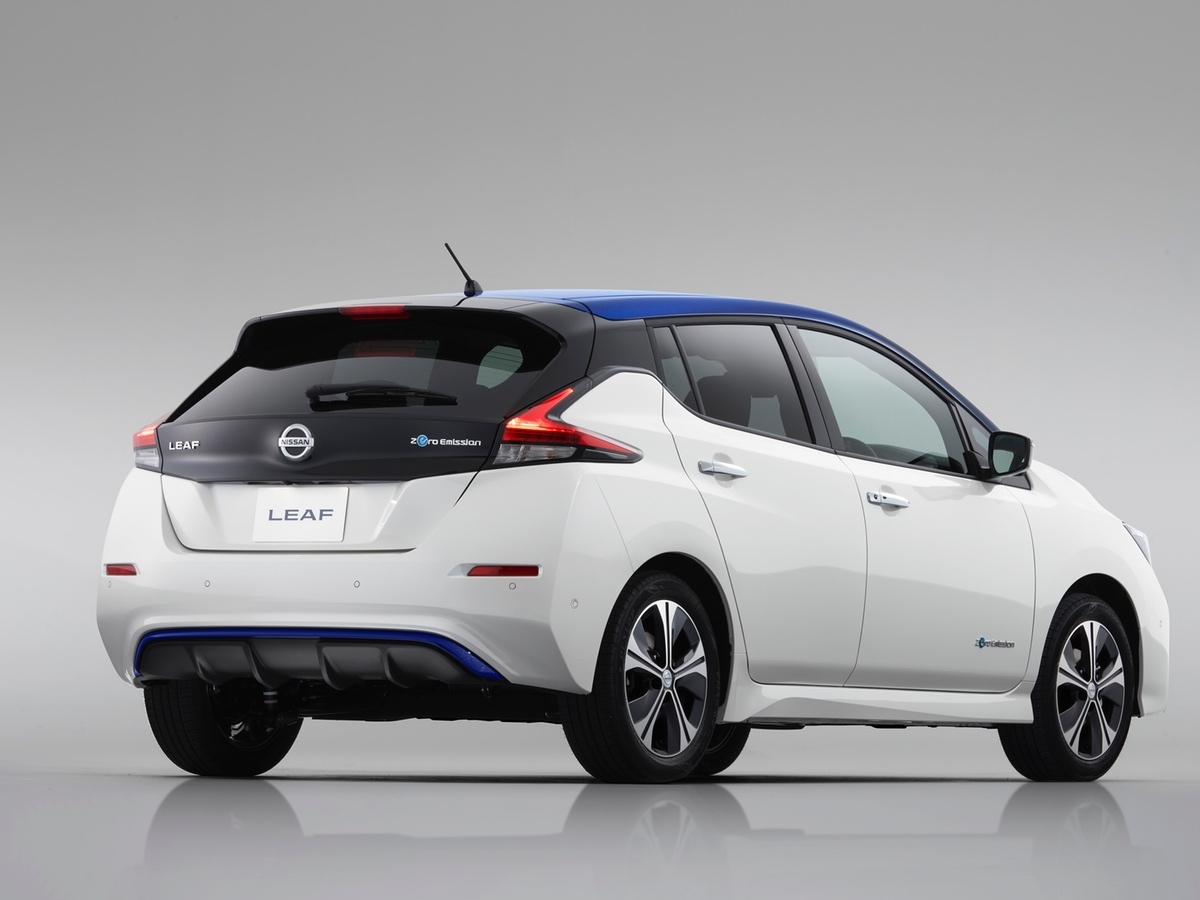
Well, the 1.0l EcoBoost variant, anyway. Still, 148bhp is nothing to shirk at in an all-electric whizzer – especially when it’s all delivered across a gear-free acceleration gradient.
Admittedly, using all of those horsepower all of the time is likely to dramatically reduced the theoretical range of your new battery-powered plaything, but it’s good to know that you can do a bit of eco-hooning if the mood takes you.
With the 110kw electric motor driven by a 40kwh battery, it’ll top-out at 90mph on the motorway – and hit 60mph in 7.9s.
All of which means that, while the new Leaf probably won’t be winning BTCC races any time soon, it’s a properly real-world way to get around – and won’t see you left behind on the supermarket run.
It’s one slippery aero critter
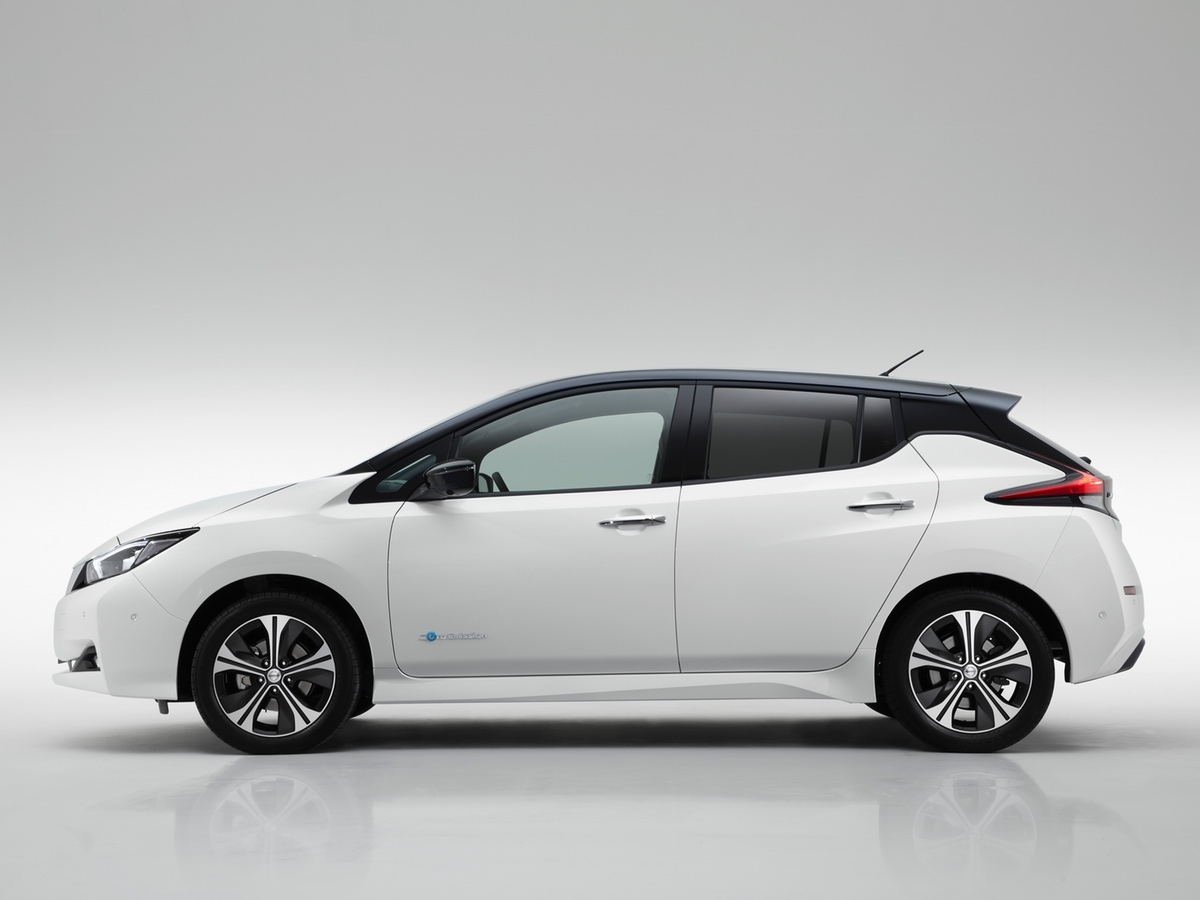
A drag coefficient of 0.28 might seem like another meaningless statistic – but it’s a key part of the Leaf’s eco credentials.
By combining a low profile, aero wheels and a diffuser-style rear bumper, drag (the enemy of everything that moves, electric or otherwise) is cut drastically on the new Leaf – maximising efficiencies made elsewhere.
While it hasn’t gone full eco (think wrapped wheels and a windowless build), the Leaf is plenty slippery enough to see it carving through the air without harming the range.
A curb weight of 1535kg helps, too. Yes, it’s heavier than a BMW i3 (around 1300kg) – but it’s also more practical, with four doors and a decent 435l boot capacity (which is 65l more than the current Leaf, and should make shifting your eco storage boxes a lot easier).
It’ll parallel park all by itself – and go sort-of-autonomous, too
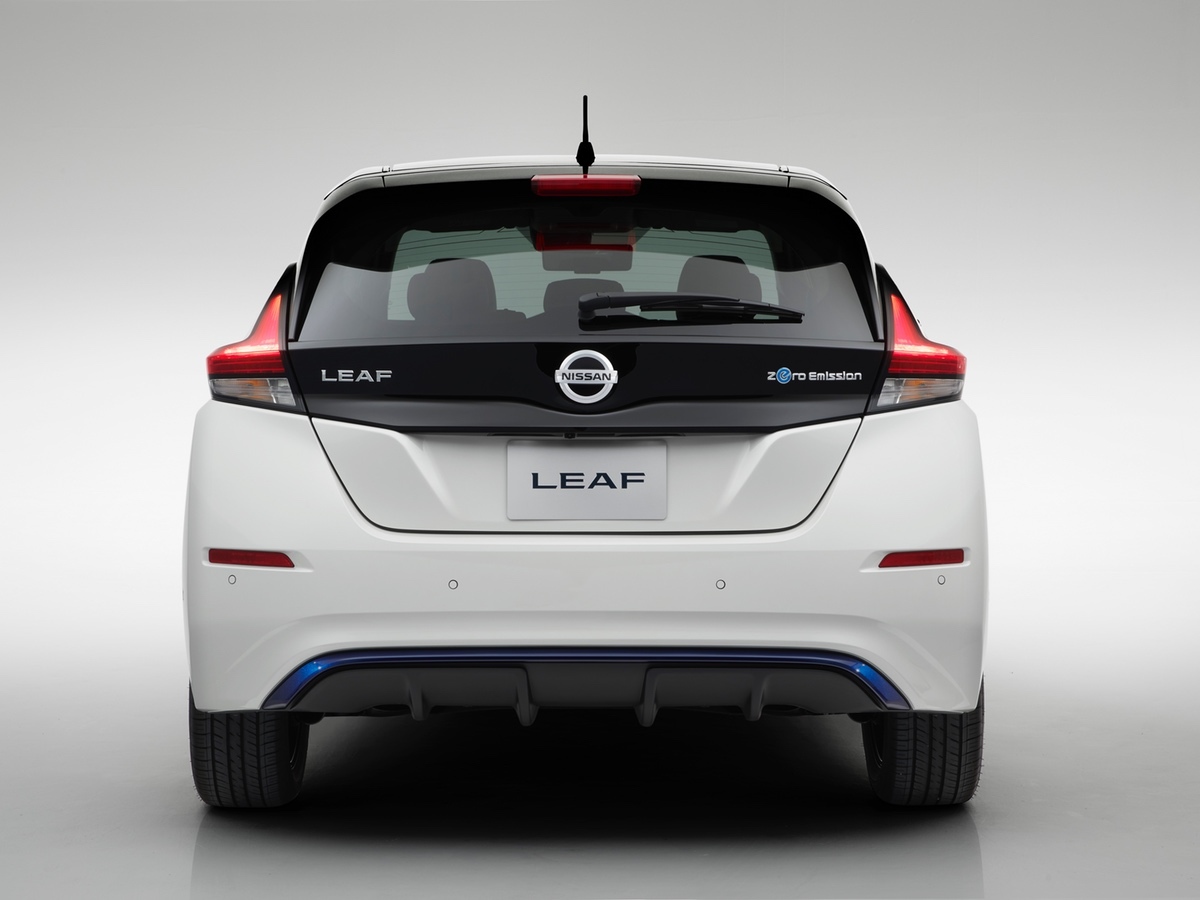
OK, so auto-parking has been around for a couple of years already – but things are different on the 2018 Nissan Leaf.
Using a suite of sonar sensors, cameras and general autonomous wizardry, the Propilot Park system can tuck the Leaf neatly into almost any parking spot – whether that’s parallel, nose-first or wonky in a field. Like a robo-cabbie you can’t see, it’ll take care of the steering, throttle and brakes. All you have to do is watch.
And that’s not all. Nissan’s new baby is its most autonomous car to date. Which doesn’t mean it’s going all Ex Machina and trying to free itself form its vehicular bonds; rather, it’ll do single-lane driving all by itself. Set a speed between 19mph and 62mph and it’ll automatically control the distance to the car in front, braking if it brakes and stopping automatically – before restarting with the push of a button. It’ll help steer, too, keeping your Leaf in the middle of its lane.
No lane-changing motorway magic, then, but it should still let you take your foot off that e-Pedal a fair bit of your journey.



